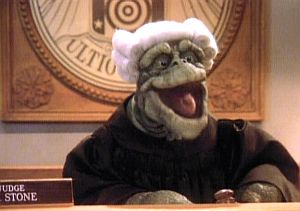Courts Give up Hope on Executive Branch State Secrets Claims
by Roger Strother*, 4/29/2009
In a blow to a key position held by the Bush and Obama administrations on executive branch power, an appeals court has ruled against the administrations on a major state secrets case. On April 28, the 9th US Circuit Court of Appeals ruled that Boeing subsidiary Jeppeson DataPlan, which participated in flying suspected terrorists to foreign countries to be tortured as part of the CIA “extraordinary rendition” program, can be sued. Both administrations had attempted to protect the company by using the state secrets privilege to throw out the case.
Historically, the privilege has only been invoked to withhold specific pieces of evidence from being reviewed by a judge for possible introduction at trial. Officials in the Bush administration interpreted the privilege more broadly to pressure courts to dismiss entire cases und er the claim, arguing that any and all records related to the government's defense would be state secrets. The privilege has been used to cover up violations of U.S. and international law such as wiretapping programs, torture, and rendition.
er the claim, arguing that any and all records related to the government's defense would be state secrets. The privilege has been used to cover up violations of U.S. and international law such as wiretapping programs, torture, and rendition.
The Obama administration shocked many when it went back on campaign and Democratic Party promises to act contrarily. Instead, the administration applied the same Bush administration arguments to three different cases. Obama has been adamant in recent days about protecting government secrecy claims stating, “[I]t is my strong belief that the United States has a solemn duty to vigorously maintain the classified nature of certain activities and information related to national security.” I agree with that statement – but only when those activities don’t break the law and have the cumulative effect of actually harming national security.
The appellate court specifies that the administration cannot use the privilege to dismiss an entire case and must point to specific evidence that would harm national security if disclosed. This would codify, through case law, the practice of applying the state secrets privilege specifically, not broadly, in almost every instance as it was before the Bush administration. It argued that the administration sought to remove itself from the system of checks and balances by ordering the Judiciary to “effectively cordon off all secret government actions from judicial scrutiny.”
What we are seeing is the Judiciary finally realizing that the executive branch will not limit its own powers. Courts, especially lower courts, rarely challenge use of the Supreme Court-established privilege; most cases have been dismissed upon the government's assertion of the privilege. In 2007, the Supreme Court also refused an opportunity to review the broader use of the privilege. Further, Congress has repeatedly waffled on this issue and legislative change offered in the past has been met little success. Still, the state secrets bill that sits in the House seeks to reopen cases, as far back as 2002, in which the privilege was claimed and would bring much needed reconciliation.
Image courtesy of Muppet Wiki, available at muppet.wikia.com.



